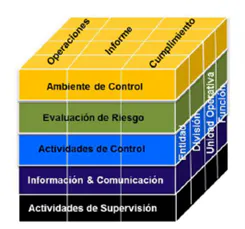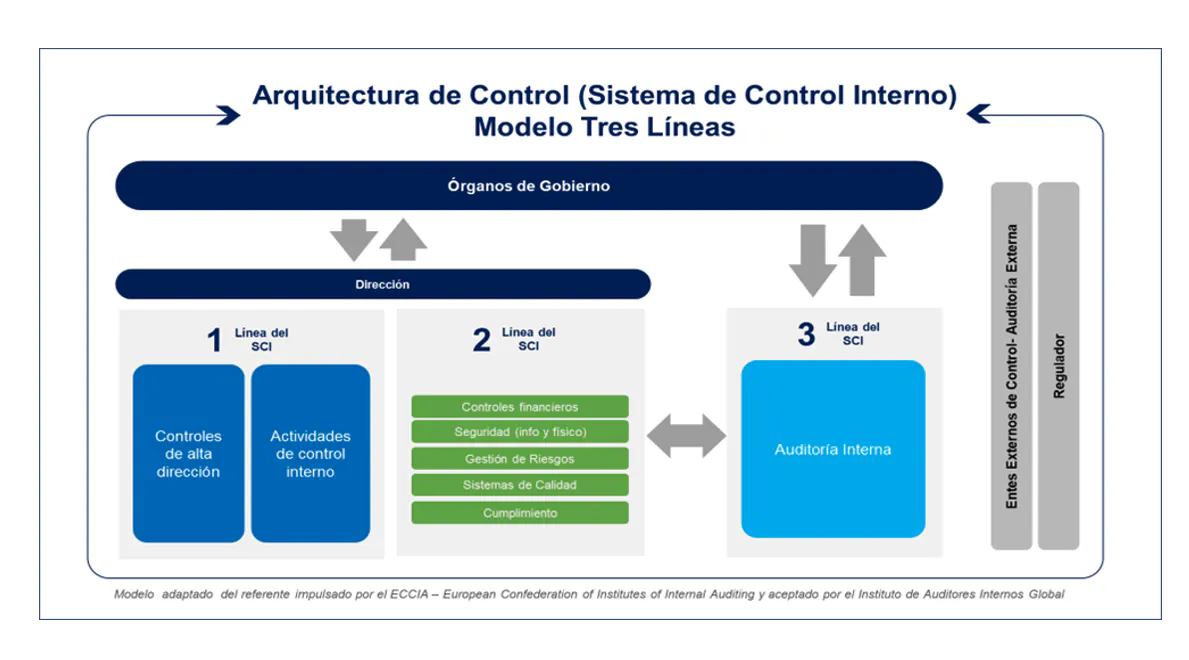Within Grupo Energía Bogotá (GEB), we conceive internal control as a set of activities carried out systematically and daily as part of our processes, in order to provide the Business Group with reasonable security in compliance with its organizational objectives.
Our framework is based on:
Control Architecture Policy
Esta política establece la estructura de control necesaria para mantener y fortalecer el Sistema de Control Interno (SCI), a través de un modelo de referencia que defina lineamientos generales, roles y responsabilidades necesarios para el funcionamiento del SCI.
2013 COSO Internal Control Framework
By means of the Control Architecture Policy, we adopt the COSO 2013 Internal Control Model.
By applying this framework, we promote continuous improvement in each process, helping to optimize operational efficiency, the reliability of financial and non-financial information, and regulatory compliance.
Three Lines Model
Furthermore, in the Group, we have adopted the Three Lines of Defense Model through which we define the roles and responsibilities framework to manage the Control Architecture, which is necessary to facilitate the achievement of organizational objectives and, in turn, promote strong governance in risk management and control.
- First Line
Design and implement controls (in each process) to address the risks. Employees, we are all involved in the organization when we carry out any type of control activity.
- Second Line
They perform a supervisory function. Designed to support management by monitoring processes, aiding in the effective management of processes.
- Third Line
Provide an independent and objective review of the established internal controls and their effectiveness. This function is carried out in the company by the Corporate General Audit and provides assurance and reporting to the Audit and Risk Committee on the effectiveness and efficiency of the Internal Control system defined by the Group's Senior Management.
Internal Control System Principles
We have three principles that frame our Code of Conduct, as follows:
- Self-regulation
Assessing our work and identifying and correcting any deviations in compliance with job duties - Self-regulation
Developing internal methods, standards, and procedures that continuously enhance the processes. - Self-management
Coordinating, executing, and effectively and efficiently evaluating the operation of the Internal Control system.
>> Here click Consult the Policy of Control Architecture


